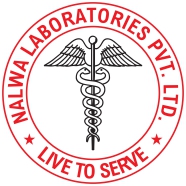Microbiology

Microbiology is a branch of laboratory services that focuses on identifying and fighting bacteria, viruses, and other microorganisms that can cause infections in humans. When you’re sick, your healthcare provider may order microbiology tests to determine the cause of your illness and prescribe appropriate treatment. These tests involve taking samples from various parts of your body, such as blood, urine, throat swabs, or stool, and then growing and identifying any bacteria, viruses, or fungi present in those samples.
Here’s how the process typically works:
Sample collection: Your healthcare provider will collect a sample from you, depending on your symptoms and suspected infection. This could be a blood sample, urine sample, throat swab, or stool sample.
Transport to the laboratory: The sample is carefully packaged and transported to the microbiology laboratory, where it will be processed and analyzed.
Cultures: In the lab, the sample is placed in a special growth medium that encourages the growth of any microorganisms present. This allows the bacteria, viruses, or fungi to multiply and form visible colonies that can be identified.
Identification: Once the colonies have grown, microbiologists use various techniques to identify the type of microorganisms present. This may involve looking at the colonies under a microscope, performing biochemical tests, or using molecular methods such as polymerase chain reaction (PCR) to detect specific DNA sequences.
Sensitivity testing: In some cases, further testing may be done to determine which antibiotics or antifungal medications will be most effective in treating the infection. This helps healthcare providers tailor treatment to the specific microorganism causing the illness.
Reporting results: Once the analysis is complete, the microbiology laboratory will send the results to your healthcare provider, who will then discuss them with you and recommend appropriate treatment.
Microbiology plays a crucial role in diagnosing and treating infectious diseases. By identifying the cause of your illness, healthcare providers can prescribe the most effective treatment and help you recover more quickly. It’s important to follow your healthcare provider’s instructions and take any prescribed medications exactly as directed to ensure that the infection is fully treated and doesn’t come back.

